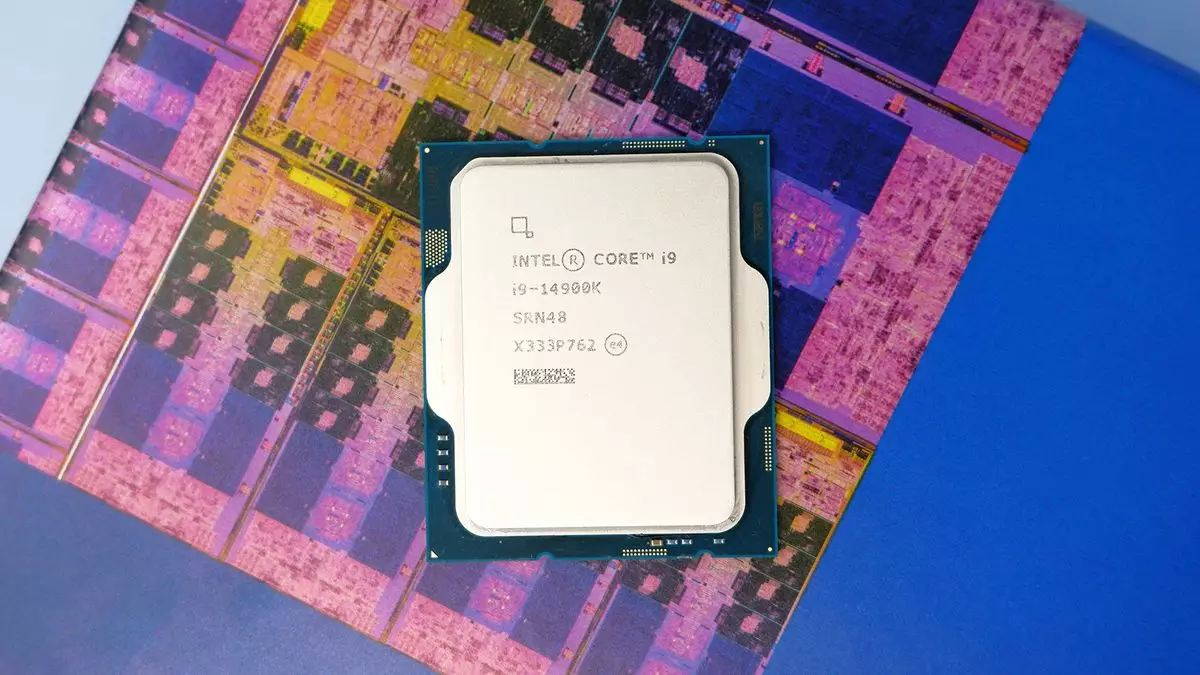In a significant development that has sent ripples through the tech community, Intel Corporation is now embroiled in a class action lawsuit claiming that it knowingly marketed and sold faulty CPUs. The suit, initiated by Mark Vanvalkenburgh from Orchard Park, New York, targets the Intel Core i7-13700K processor—a product purchased in January 2023 that reportedly suffered from high instability and frequent crashes. The legal action highlights a growing concern over the reliability of Intel’s 13th and 14th Generation Raptor Lake processors, which have recently come under scrutiny for widespread issues.
According to the details shared in the lawsuit, Vanvalkenburgh’s experience with his Intel processor paints a grim picture of product reliability. After buying the i7-13700K, he quickly discovered that the processor was fundamentally defective, experiencing a high frequency of crashes. Although he applied the Intel-provided microcode patch intended to address such issues, it appears that this fix was ineffective. This failure raises critical questions about the adequacy of Intel’s quality assurance practices, particularly concerning the pre- and post-release testing of their products.
The lawsuit posits that Intel was aware of the defects in its processors long before the lawsuit was filed. Evidence cited in the suit suggests that by late 2022 or early 2023, Intel had received numerous reports regarding the same issues—pointing to an alarming trend of product failures. Intel’s practices in monitoring returns, press reports, and user feedback allegedly indicate that the company was not only aware of the problems but may have chosen to continue selling these defective chips regardless. If these claims are substantiated, the repercussions for Intel could be severe, resulting in damaging reputational harm and significant financial losses.
While Intel maintains that it addressed the issues with a series of microcode patches, the effectiveness of these solutions is in serious question. Reports from several affected users claim that these patches did not rectify the situation, leading to persistent instability and crashes. Intel has acknowledged that, in some cases where damage has occurred due to voltage spikes affecting the CPU’s clock tree circuit, these patches could not restore functionality. In such circumstances, an entirely new chip replacement is necessitated—a factor that compelled Intel to extend warranties on Raptor Lake processors by two years and enhance their return merchandise authorization (RMA) processes.
These developments add a layer of complexity to the situation. On one hand, Intel’s actions can be viewed as a responsible response to potential product failures. On the other hand, it raises more profound questions about the initial decision to sell affected processors without full transparency regarding their reliability. The internal processes regarding quality assurance appear to be increasingly under scrutiny, with allegations suggesting that the company may have prioritized profit margins over customer trust and product integrity.
The implications of this lawsuit extend beyond the individual claims of Vanvalkenburgh. If the court finds in favor of the plaintiff, it could trigger a wave of similar lawsuits and damage Intel’s standing within the marketplace. This comes at a particularly precarious time for Intel, having already withdrawn from the Dow Jones stock index and grappling with reputational challenges. The financial fallout from potentially compensating a large number of affected customers could add further strain to the company’s already fragile position.
With the stakes so high, the next steps for Intel are pivotal. Will the company choose to contest the claims vigorously, laying bare their defense strategies, or will they opt for expedited settlement negotiations? A long legal battle risks prolonging reputational damage and drawing unwanted scrutiny from both regulators and consumers alike.
The class action lawsuit against Intel signifies more than a legal conflict; it poses grave questions about the integrity of one of the largest players in the semiconductor industry. As the courtroom drama unfolds, it serves as a stark reminder of the pressing accountability that manufacturers bear for the products they bring to market. The litigation could redefine consumer trust in the tech sector, making it essential for companies like Intel to be transparent and responsible in their production and customer service practices. In an arena where reliability is paramount, any misstep can have lasting consequences.

